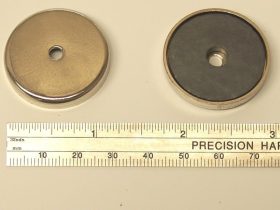Have you ever considered suing someone? Have you ever thought about taking a business to court after poor service damaged your property or caused other harm? If so, know this: collecting on any judgment awarded by a civil court is not so easy. In fact, it can be downright hard.
Hollywood has given us the false impression that court judgments are immediately payable. A misunderstanding of how the system works leads us to believe that a winning plaintiff in a civil case walks out of the courtroom with full payment in hand. But that is not the way it works. When it comes to both winning a case and getting paid, the former is generally the easier of the two tasks.
For all intents and purposes, a judgment is little more than court recognition of an existence of monetary obligation. But most states do not give judges the authority to enforce collection. They can only enter verdicts. It is up to plaintiffs and their legal agents to actually collect what is owed.
1. There Is Paperwork Involved
Judgment Collectors is a Salt Lake City, UT judgement collection agency that specializes in unpaid judgments. They say that collection is hard mainly because the process is so detailed and time-consuming. For starters, there is paperwork involved.
Paperwork is required to turn a court verdict into an actual judgment the plaintiff has the legal authority to collect. Then, depending on how collection efforts proceed, there is additional paperwork. Paperwork has to be filed if the plaintiff hopes to garnish the defendant’s wages or bank accounts. Paperwork is required to place liens on defendant assets. It goes on and on.
2. Defendants Don’t Always Cooperate
Collecting on an unpaid judgment is made harder when defendants do not cooperate. And take it from Judgment Collectors, a lack of cooperation is pretty common. Defendants often go out of their way to avoid paying at all costs. Unfortunately, they are abetted by lawyers who know all the tricks of the trade.
3. Assets Are Easily Hidden
One of the things lawyers tell their clients is to hide their assets. It turns out that doing so is pretty easy. For instance, it takes very little time and effort to transfer a property deed from one party to another. A defendant in danger of losing a piece of property held exclusively in their name can transfer ownership of that property to their spouse. Done and done.
It takes time and effort for judgment collectors to track down assets. They have to comb through all sorts of records and databases. They must crosscheck one document against several others to verify data accuracy. Once assets are discovered, it takes time to bring them to bear against a defendant in order to get them to pay.
4. Communication Is Often Slow
If there weren’t enough things to make judgment collection difficult, creditors also have to deal with communications that can move at a snail’s pace. Even under normal circumstances, people are not necessarily quick to return voicemail messages or respond to emails. When you are dealing with someone purposely trying to evade payment, those email messages and voicemails may never be returned at all.
Most cases of prolonged judgment collection only get more difficult the longer the debt remains unpaid. It is no wonder that specialized firms like Judgment Collectors are in so much demand. Creditors feel like they are better off turning judgments over to reputable collection agencies than trying to handle things themselves. Judgment collection is hard, and they really do not want to put up with the hassles that come with it.







